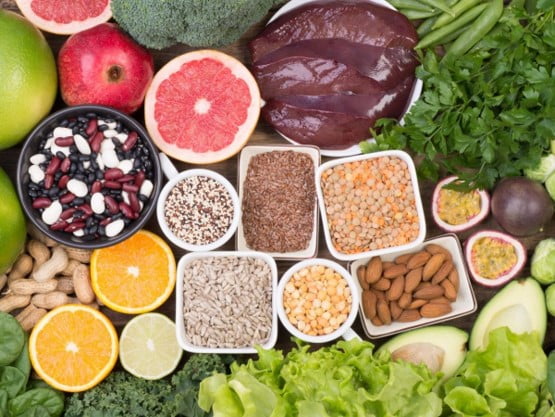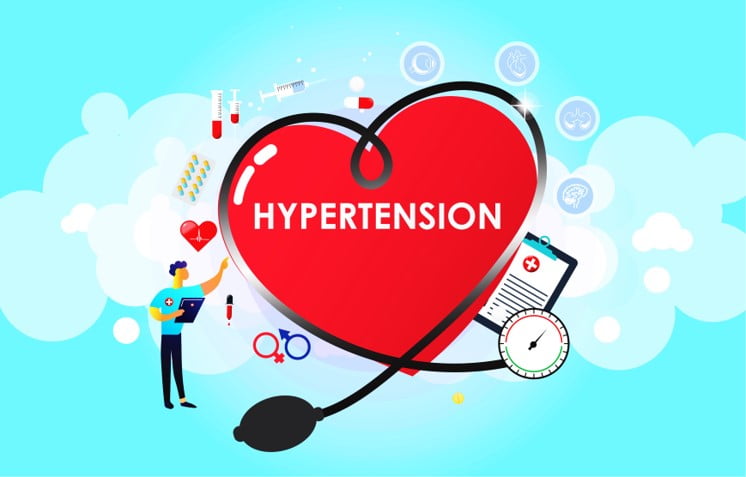One dietary guide to maintain blood pressure that can be used is DASH. The DASH diet or Dietary Approaches to Stop Hypertension is a diet that involves consuming lots of fruit, vegetables, cereals, grains, fish, chicken, nuts, and low-fat dairy products. The DASH diet also reduces consumption of sweet foods, soft drink, lemak, Red meat, and processed meat.
List of contents:
Understanding High Blood Pressure
High blood pressure, also known as hypertension, is a disease that is often found in society. Some people take this disease lightly, because the symptoms are mild, it's not even clear. Even, This disease is called the "silent killer" because it has the potential to cause serious complications and even death.
One of the serious complications is stroke, namely a disruption in brain function that occurs suddenly, due to disruption of cerebral blood vessels. Experts say, Uncontrolled hypertension increases a person's risk of stroke 4-6 times bigger. Reason, Hypertension causes hardening and blockage of blood vessels, including cerebral blood vessels. Besides that, High blood pressure can also cause weakness in the blood vessels of the brain so that they break more easily.
Considering the dangers of this disease if it is not controlled, So we should be alert and try to avoid it, especially for someone who has experienced high blood pressure several times or someone who has a family history of hypertension. Fortunately, This disease can actually be prevented, both its emergence and development with a few simple actions, in the form of regulating eating patterns, maintain an ideal weight, and exercise.
Important Nutrients for Maintaining Blood Pressure

The following foods are rich in important nutrients such as potassium, magnesium, calcium, fiber and protein, as well as low sodium and sugar which is good for maintaining blood pressure.
Folic acid
Folic acid is found in bread, cereals, and flour. There is strong evidence that folic acid lowers blood pressure and prevents the onset of high blood pressure when consumed in the right amounts, that is 800 mg/day.
Potassium (Potassium)
Insufficient potassium consumption during diet can lead to high blood pressure and stroke. Different from sodium, potassium (potassium) is the main ion in intracellular fluid. Consuming a lot of potassium will increase its concentration in the intracellular fluid, so it tends to draw fluid from the extracellular part and lowers blood pressure. The recommended ratio of sodium to potassium consumption is 1:1. Good sources of potassium are fruits, like dates, banana, call, orange, dll.
Magnesium
Although research on the effects of magnesium on blood pressure is incomplete, Preliminary evidence suggests that a diet rich in magnesium may prevent high blood pressure. A good source of magnesium is: nuts, grains, chicken, and lean meats.
Vitamin D
Vitamin D is not only good for bones but also heart health. Vitamin D is needed to help control calcium levels and contribute to blood pressure regulation. Foods rich in vitamin D include: mold, tuna, counts, cod liver oil, sausage, soya bean, and oysters.
Closing
It turns out, To maintain blood pressure so that you experience hypertension you don't have to abstain from most foods. In fact, Some foods that are quite delicious can still be eaten in normal portions without fear of increasing blood pressure. It really takes patience and persistence to control yourself in choosing foods that are beneficial and not harmful. Clear, knowledge about the dangers of high blood pressure and awareness to avoid it is also necessary. Of course we agree that health is a gift and a very valuable investment, right??
Other healthy tips: 5 Tips for Caring for Dental and Oral Health, It is important to increase self-confidence
Reference: Muslim Health Magazine

